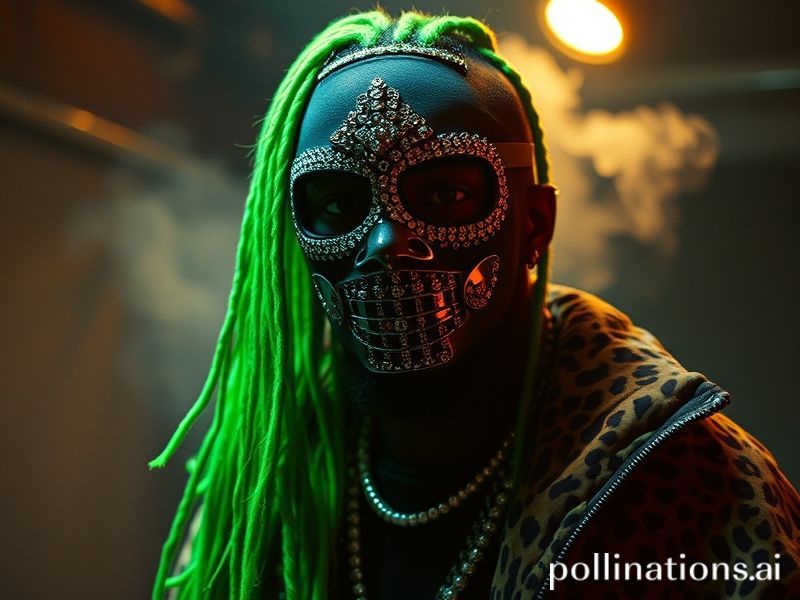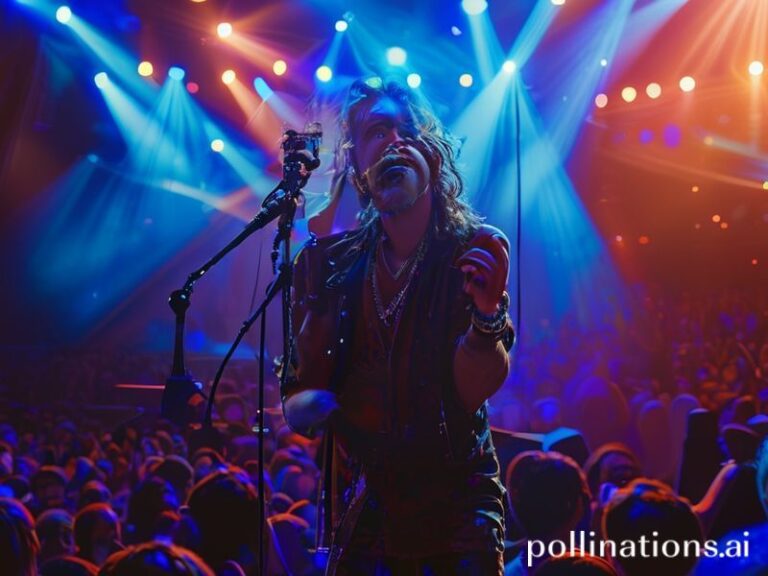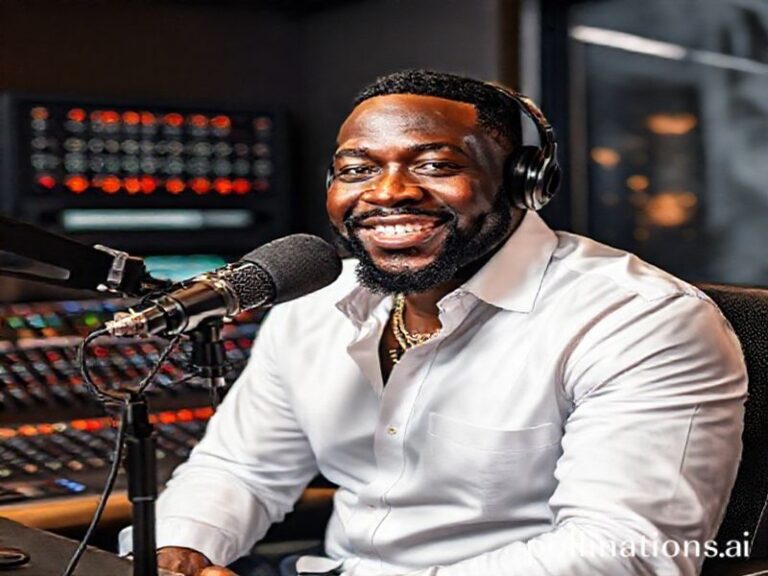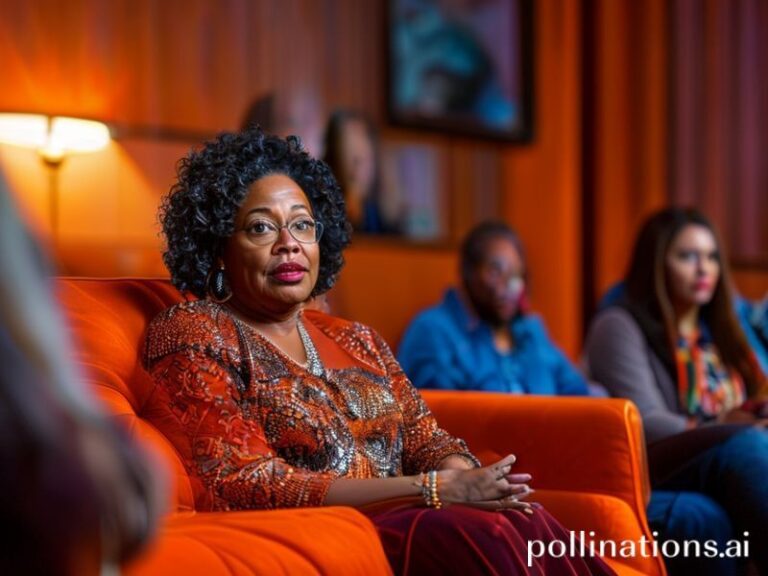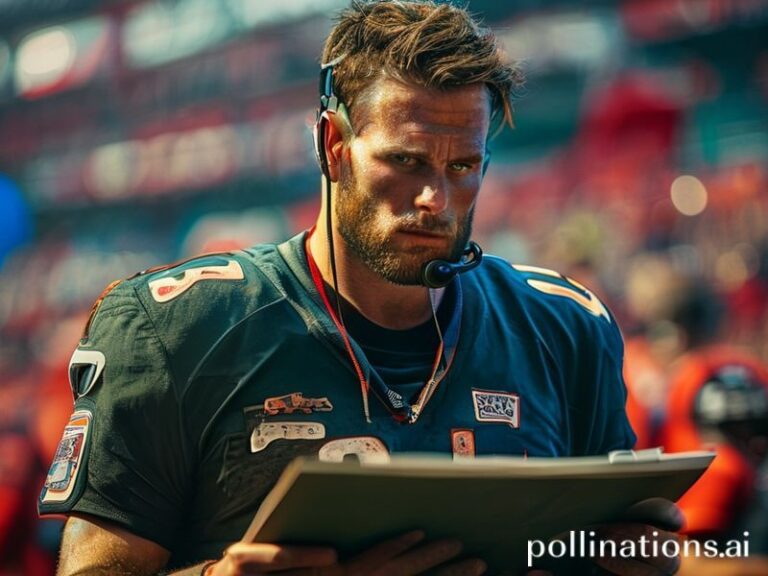Young Thug on Trial: How an Atlanta Courtroom Became the World’s Favorite Reality Show
From the glassy towers of Seoul’s Gangnam district to the favelas of Rio, the name “Young Thug” has become a sort of Rosetta Stone for the universal language of legal theatre. In October 2023, Atlanta’s Fulton County courthouse—already famous for hosting the 2020 election-interference circus—rolled out a sequel: the YSL RICO trial. Abroad, the case is consumed less as jurisprudence and more as prestige television without subtitles. Europeans call it “Better Call Saul meets Narcos,” while Japanese hip-hop forums paste courtroom sketches onto manga panels. The spectacle is so American that other nations feel vicariously obese just watching.
The global fascination makes a perverse kind of sense. Young Thug—born Jeffery Williams, re-branded by algorithmic destiny—has spent a decade warping the English language into helium yelps and ad-libbed glossolalia. To non-native speakers, his music already sounded like a legal deposition played at 1.5× speed, so seeing him actually sworn in feels like continuity rather than rupture. German DJs sample the gavel bangs for techno tracks; Nigerian TikTokers overlay the prosecutor’s objections onto Afrobeats. Somewhere in a Damascus internet café, a teenager is subtitling the judge’s “Mr. Williams, please answer the question” into Arabic and getting 300K likes. Soft power, ladies and gentlemen.
Meanwhile, the charges—racketeering, gang conspiracy, possession of substances that sound like failed Pokémon evolutions—read like a Mad Libs of late-stage capitalism. American prosecutors insist Young Slime Life is a criminal enterprise; the defense claims it’s merely a record label with unusually aggressive HR policies. The semantic debate lands differently abroad. In Switzerland, where the national pastime is laundering everyone else’s money, citizens marvel that Atlanta still bothers outlawing organized profit. In Brazil, where entire militaries moonlight as organized crime, the indictment looks quaint—like fining a tsunami for jaywalking.
Yet the trial’s export value keeps climbing. French sociologists cite it in lectures titled “Rap et L’État Paternaliste.” British tabloids run sidebars: “Knife Crime, but Make It Autotuned.” The Kremlin’s English-language propaganda channels splice courtroom footage with captions reading “This is what democracy does to Black artists,” conveniently ignoring their own playlist of disappeared dissidents. Even China’s state censors allow the hashtag #YoungThugTrial to trend—anything that depicts American chaos as systemic rather than exceptional is welcome content. The world isn’t just watching; it’s merchandising.
Behind the memes lies a grimmer ledger. If convicted, Williams faces decades that would convert to centuries in metric time. The same countries bingeing the livestream also export the raw materials of the American carceral state: Colombian prison consultants, Israeli surveillance tech, Norwegian jail furniture. Globalization, that old hydra, sells every nation a ticket to the same cage. Viewers tweet “Free Thug” in Cyrillic and Hangul while their governments sign fresh extradition treaties with the U.S. Department of Justice—solidarity as performance art.
Still, the defense offers a transatlantic plot twist: lyrics as protected speech. American courts have historically treated rap as autobiographical confession, an anthropological quirk that baffles civil-law countries where judges ask “Who produced this track?” with the same tone they’d ask “Who loaded this gun?” If the First Amendment can stretch to cover onomatopoeic gun sounds, the precedent will ripple outward. Picture a grime MC in London invoking Young Thug to beat a Section 60 order, or a French drill rapper quoting Fulton County to dodge the “loi contre le terrorisme.” Freedom of speech, previously marketed as an American luxury good, could become open-source.
As closing arguments loom, the world confronts a cosmic punchline. The same algorithms that once flattened regional accents into a single, Auto-Tuned monoculture now distribute courtroom minutiae in 4K. Young Thug’s fate will be decided by twelve Atlantans who probably can’t locate Azerbaijan on a map, yet their verdict will reverberate through Baku nightclubs. Somewhere, a kid in Jakarta is learning English by lip-syncing “Hot” while another in Detroit is streaming anime subtitled by Russian teenagers. The trial, like the music, is just another node in a planetary feedback loop of aspiration, condemnation, and remix. The verdict won’t end anything; it will merely provide the next beat drop. And somewhere in the cosmos, Lady Justice adjusts her blindfold to the 808s.

